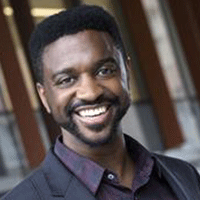
Damena Agonafer
University of Maryland, College Park
Submission Title: Thermal Management of Electronics From Device Level to Data Centers
Biography: Dr. Damena Agonafer is the Clark Faculty Fellow and an Associate Professor at the University of Maryland, College Park, where he directs the Nanoscale Energy and Interfacial Transport Lab (NEITLab). Additionally, he is the site director of the EARTH research center at the University of Maryland, which is focused on developing novel, Earth-friendly refrigerants and HVACR technologies. Agonafer earned his PhD at the University of Illinois Urbana-Champaign, where he was supported by the Alfred P. Sloan fellowship, Graduate Engineering Minority Fellowship, and NSF Center of Advanced Materials for Purification of Water with Systems (WaterCAMPWS). After his PhD, Damena joined Professor Ken Goodson’s Nanoheat lab as a Stanford University Postdoctoral Scholar in the Mechanical Engineering Department. Before joining the University of Maryland, Damena was an Assistant Professor in the Department of Mechanical Engineering at Washington University in Saint Louis. He is a recipient of the Google Research Award, Sloan Research Fellowship Award, Cisco Research Award, NSF CAREER Award, ASME Early Career Award, and ASME K-16 Outstanding Early Faculty Career in Thermal Management Award. He was also one of 85 early-career engineers in the US selected to attend the 2021 National Academy of Engineering’s 26th annual US Frontiers of Engineering symposium.
Dr. Agonafer’s research interest is at the intersection of thermal-fluid sciences, interfacial transport phenomena, and renewable energy. He is focused on developing novel materials and systems for the thermal management of power and microelectronic systems, HVACR applications, and thermal energy storage for utility-scale applications. He aims to achieve transformational technological changes by tuning and controlling solid-liquid-vapor interactions at micro-/nano length scales. Specific focus areas include developing novel micro-/nanostructures for two-phase heat transfer for efficient data center IT compute cooling and improved refrigeration processes, high capacitance dielectric slurries for enhanced thermal management of defense applications, and phase change materials for transient/diurnal thermal loads. Additionally, his research group is tapping the vast potential of machine learning to facilitate faster modeling and design of thermal technologies for different applications.

Michael D. Bartlett
Virginia Tech
Submission Title: Career: Static, Dynamic and Kinematic Analysis and Optimization of Tensegrity Structures Through Cellular Morphogenesis
Biography: Michael Bartlett is an Associate Professor and John R. Jones III Faculty Fellow of Mechanical Engineering at Virginia Tech. His research focuses on soft multifunctional materials for deformable electronics and soft robotics, adaptive materials, and switchable and intelligent adhesives. He received his BSE in Materials Science and Engineering from Michigan in 2008 and Ph.D. in Polymer Science and Engineering from UMass Amherst in 2013. After obtaining his Ph.D. he worked as a Senior Research Engineer in the Corporate Research Laboratory at 3M, as a Postdoctoral Fellow at Carnegie Mellon University, and was an Assistant Professor at Iowa State University before joining Virginia Tech in 2020. His research has resulted in publications, patents, media coverage, and awards including an NSF CAREER award, a DARPA Young Faculty Award (YFA) and Director’s Fellowship, a ONR Young Investigator (YIP) Award, a senior member of the National Academy of Inventors, the Early Career Scientist Award and Best Paper Award from the Adhesion Society, a 3M Non-Tenured Faculty Award, and an Outstanding Faculty Award (student nominated) among others. More info here.
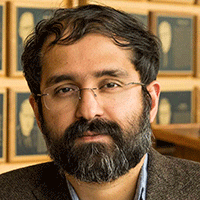
Saikat Basu
South Dakota State University
Submission Title: Multi-Scale Flow Physics Model for Inhaled Transmission in the Upper Respiratory Tract
Biography: Dr. Saikat Basu, an Assistant Professor of Mechanical Engineering at South Dakota State University (SDSU), leads the Biomedical and Bioinspired Fluid Dynamics Lab. Specializing in classical fluid mechanics, his team develops multi-scale theoretical and computational fluid dynamics models for complex biophysical systems, such as respiratory physiology and cancer microenvironments. They validate these models through collaborations with experimental specialists and conduct simple tabletop tests using 3D-printed anatomical replicas. Dr. Basu's interdisciplinary collaborations span medical science, nursing, biology, pharmacology, virology, and industry sectors related to drug delivery, personalized medicine, and device design. With a Ph.D. in Engineering Mechanics from Virginia Tech (2014) and postdoctoral experience at OIST Japan (2014-2016) and UNC Chapel Hill Medical School (2016-2018), he joined SDSU in January 2019. Since then, he has established a globally recognized research program at the intersection of engineering physics and medicine, securing prestigious grants like the NSF CAREER Award (in 2024) and an NIH COBRE RPL Award (in 2023). Dr. Basu has published over 75 journal and conference papers, and his research has been featured in popular media outlets such as New Scientist, USA Today, Science Daily, and ACS News.

John (William) Boley
Boston University
Submission Title: Designing Materials and Processes for Ink-Based 3d Printing of Multiscale Multimaterial Multifunctional Systems
Biography: Will Boley is an Assistant Professor in the Department of Mechanical Engineering and the Division of Materials Science and Engineering at Boston University, and is the founding director of the Additive Assembly Laboratory (AAL) at Boston University. Professor Boley’s research group focuses on understanding and harnessing the relationships between materials synthesis, assembly process, and multi-scale architecture in additive manufacturing to create new functional materials and devices. To accomplish this, his research combines aspects of materials science, thermal fluid science, design, and optimization. Target application areas include electronics, optics, sensors, and soft robotics. He is the recipient of the 2020 AFOSR YIP and the 2021 NSF CAREER Awards.
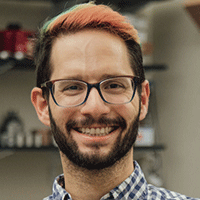
Lane Carasik, Ph.D.
Virginia Commonwealth University
Submission Title: Holistic Investigations of Molten Salt Fusion Energy Systems: System and Component Design Using Computational and Experimental Methodologies
Biography: Dr. Lane Carasik is an Assistant Professor within the Department of Mechanical and Nuclear Engineering at VCU. Dr. Carasik is the Director of the Fluids in Advanced Systems and Technology (FAST) research group that does computational and experimental thermal hydraulics research in advanced energy systems. He was previously an engineer at Kairos Power and Ultra Safe Nuclear Corporation. Dr. Carasik has a Ph.D. in Nuclear Engineering from Texas A&M University and a B.S. in Nuclear Engineering from the University of Tennessee, Knoxville. In July 2023, Dr. Carasik is a Department of Energy Office of Science Early Career Research Program awardee focused on molten salt fusion energy systems development. Dr. Carasik has ongoing experimental and computational efforts that support design and licensing activities for molten salt reactors and sodium fast reactors. This experience includes experimental efforts using scaled surrogate separate effects facilities, high-fidelity CFD modeling including RANS modeling, and LES with Nek5000/NekRS. As part of his research and educational activities, Dr. Carasik focuses on serving underserved and underrepresented students at VCU and the overall nuclear community through serving as the previous Chair of the Diversity and Inclusion in the ANS Committee. Several of Dr. Carasik’s current and past graduate and undergraduate researchers are part of these underserved & underrepresented communities. Additionally, Dr. Carasik was a co-recipient of the 2020 American Society of Mechanical Engineers (ASME) FED Moody and 2018 ASME CFD Best Paper Awards for work completed while employed at Kairos Power on a Department of Energy (DOE) GAIN Voucher.
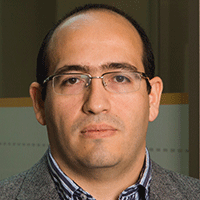
Carlos E. Castano
Virginia Commonwealth University
Submission Title: Advanced Surface Modification of Powders for Sintering-Based Manufacturing
Biography: Carlos E. Castano is a Tenured Associate Professor of the Department of Mechanical and Nuclear Engineering at Virginia Commonwealth University (VCU). Dr. Castano received a B.S. in Engineering Physics and an M.S. in Engineering from the National University of Colombia. He worked in R & D for a few years in the coating industry before obtaining his Ph.D. in Materials Science and Engineering at Missouri S&T. Joined VCU in 2014, holding appointments as Postdoctoral Fellow, Research Associate at the Nanomaterials Core Characterization Center, and Assistant Professor before being promoted with tenure in 2023. Dr. Castano has received funding from different sources including NSF, DOE, and NRC. He has also received numerous recognitions, including the NSF Career Award, honorary ALPHA SIGMA MU member, Roberto Rocca Fellow, VCU NIRA, and inducted into National Academy of Inventors Chapter at VCU. Castano's research group focuses on tailoring the surface properties of materials for applications in various fields including Advanced Manufacturing, Catalysis, Sensors, Solar Fuels, Sustainable Materials, Functional Materials, and Materials under Extreme Environments.
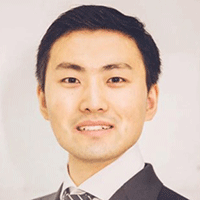
Jun Chen
University of California, Los Angeles
Submission Title: Discovering Magnetoelasticity in Soft Matter for Bioelectronics
Biography: Dr. Jun Chen is currently an associate professor with tenure in the Department of Bioengineering at the University of California, Los Angeles (UCLA). His research focuses on soft matter innovation for healthcare and energy. He has published two books and 330 journal articles, with 230 of them being corresponding authors in Chemical Reviews (2), Chemical Society Reviews (2), Nature Review Bioengineering (1), Nature Materials (2), Nature Electronics (8), Nature Biotechnology (1), Nature Biomedical Engineering (1), Nature Communications (8), Science Advances (3), Joule (3), Matter (18), Advanced Materials (15), among others. He also filed 14 US patents, including one licensed. With a current h-index of 116, Dr. Chen was identified to be one of the world’s most influential researchers in the field of Materials Science on the Web of Science. Among his many accolades are the V. M. Watanabe Excellence in Research Award (1 faculty per year in UCLA Samueli School of Engineering), Shu Chien Early Career Award, UCLA Faculty Mentor Award, UCLA Society of Hellman Fellows Award, Georgia Tech Alumni 40 Under 40, ONR Young Investigator Award, AHA Innovative Project Award, AHA Transformational Project Award, AHA's Second Century Early Faculty Independence Award, NIH UCLA CTSI KL2 Translational Science Award, BBRF Young Investigator Award, Okawa Foundation Research Award, Advanced Materials Rising Star, Materials Today Rising Star Award, ACS Nano Rising Stars Lectureship Award, Chem. Soc. Rev. Emerging Investigator Award, Nano Research Young Innovator Award, ACS PMSE Young Investigator Award, Clarivate Highly Cited Researchers 2019/2020/2021/2022/2023/2024, among others.
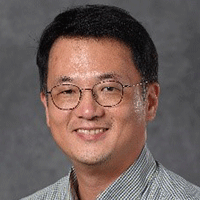
Haseung Chung
Michigan State University
Submission Title: Development of Scalable and Expeditious Additive Manufacturing (Seam): A Solution to High Production Additive Manufacturing
Biography: Dr. Haseung Chung is currently an Associate Professor in the Department of Mechanical Engineering at Michigan State University (MSU). Before he joined the Michigan State University in 2017, Dr. Chung was a Research Associate Professor in the Department of Mechanical Engineering at the University of Michigan (UM) and Associate Professor in the Department of Mechanical and System Design Engineering at Hongik University in Korea. Dr. Chung received his B.S. (1998) and M.S. (2000) degrees from Seoul National University in Korea. He completed his Ph.D. degree in 2005 at UM and continued to work as a Post-Doctoral Research Fellow until 2006. Dr. Chung’s professional interests and recent research include developing new additive manufacturing processes, magnetic-field assisted finishing (MAF), optimizing additive manufacturing for bio-medical applications, cyber manufacturing systems, etc. Dr. Chung has led various projects funded from NSF, DOE, ONR, NIH, and several industries as PI or Co-PI. He is awardee of 2023 NSF CAREER and 2019 Hanwha Q CELLS & Advanced Materials Non-Tenure Faculty Award. He has published about 50 papers in peer-reviewed journals and has been serving as an associate editor for three different peer-reviewed journals (Journal of Manufacturing Processes, International Journal of Precision Engineering and Manufacturing- Green Technology, Journal of Mechanical Science and Technology).
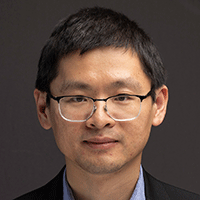
Longji Cui
University of Colorado Boulder
Submission Title: Thermal Transport and Energy Conversion at Extreme Scales
Biography: Dr. Longji Cui is currently the Assistant Professor of Mechanical Engineering at the University of Colorado Boulder. He is also affiliated with the Materials Science and Engineering Program and Center for Experiments on Quantum Materials (CEQM) at CU. He received his Ph.D. in Mechanical Engineering from the University of Michigan in 2018 and worked as the Attwell Welch Postdoctoral Fellowship at Smalley-Curl Institute and Department of Physics and at Rice University before started at CU in 2020. His current research lies in the field of nanoscale energy transport and conversion phenomena and applications in high resolution sensing and thermal-based renewable technologies. He is a recipient of NSF CAREER Award.
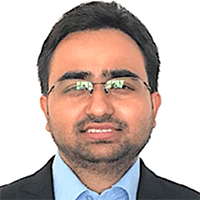
Dibakar Datta
New Jersey Institute of Technology (NJIT)
Submission Title: Electro-Chemo-Mechanics of Multiscale Active Materials for Next-Generation Energy Storage
Biography: Dibakar Datta was born and raised in a remote village in India. He pursued a diverse education across India, Spain, France, and the United States. He is currently a tenured Associate Professor of Mechanical Engineering at the New Jersey Institute of Technology (NJIT), New Jersey, USA. Dr. Datta received his Ph.D. from Brown University, specializing in the Mechanics of Solids & Structures, with minors in Physics and Chemistry. During his time at Brown, he was also a visiting researcher at the Department of Materials Science and Engineering at the University of Pennsylvania, Philadelphia, USA. He later pursued postdoctoral research in Mechanics and Computation at Stanford University. Dr. Datta's primary research focus is on computational electro-chemo-mechanics—exploring the coupling of mechanics and electrochemistry—for developing next-generation energy storage and multifunctional devices. He has received several prestigious awards, including the President of India Gold Medal (2006), the European Commission Fellowship (2008), and the NSF CAREER Award (2023).
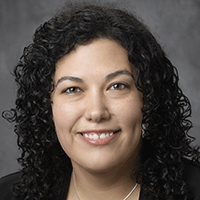
Chelsea Davis
University of Delaware
Submission Title: Illuminating Interfacial Mechanics: Utilizing Mechanophores to Quantify Stress in Polymer Composites
Biography: Dr. Chelsea Davis joined the faculty of the University of Delaware as an associate professor in the Departments of Mechanical Engineering and Materials Science and Engineering in 2023. Previously, she worked in the School of Materials Engineering at Purdue University as an assistant professor. She established the Illuminating Interfacial Mechanics Lab which focuses on the development of micromechanical characterization tools to investigate the interfacial and surface properties of soft materials. Dr. Davis obtained a B.S. in Textile Engineering from North Carolina State University in 2005 and an M.S. and Ph.D. in Polymer Science and Engineering from the University of Massachusetts Amherst in 2007 and 2012, respectively. Dr. Davis was a Michelin Postdoctoral Research Fellow at the ESPCI in Paris (2012-2013) and then an NRC Postdoctoral Fellow in the Polymers and Complex Fluids Group at the National Institute of Standards and Technology (2013-2016). Dr. Davis’s work has been recognized through the NSF CAREER Award and the Adhesion Society Early Career Scientist Award.

Tianli Feng
University of Utah
Submission Title: Career: Prediction and Understanding of Thermal Transport Across Successive Interfaces
Biography: Tianli Feng has been an assistant professor of Mechanical Engineering at the University of Utah since 2021. He earned his B.S. in Physics from the University of Science and Technology of China (USTC) in 2011, and his M.S. and Ph.D. in Mechanical Engineering from Purdue University in 2013 and 2017, respectively, where he received the Bilsland Dissertation Fellowship Honor. From 2017 to 2021, he worked as a Postdoc and R&D Associate Staff Scientist at Oak Ridge National Laboratory. He received the 2023 Brillouin Medal, 2023 Ralph E. Powe Junior Faculty Enhancement Award, 2024 NSF CAREER Award, and 2024 Assistant Professor of the Year Award at the University of Utah. He has published over 80 journal papers, developed various simulation tools, and has over 5000 citations with an h-index of 36.
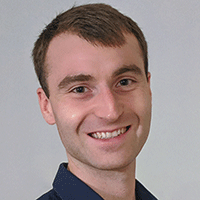
Andrew Gross
University of South Carolina
Submission Title: New Experiments for Rapid Calibration of Elastoplastic Mechanical Properties
Biography: Andrew Gross is an Assistant Professor in the Department of Mechanical Engineering at the University of South Carolina. He earned his Ph.D. from the University of Texas at Austin and completed postdoctoral training at Harvard University. His areas of expertise include the development of novel mechanical test specimens spanning the micro and centimeter scales, in situ mechanical testing, ductile fracture, and the thermomechanical behavior of architected materials. He is a recipient of the DARPA Young Faculty Award for his work to simplify the determination of complex constitutive properties of elastoplastic materials using heterogeneous stress states and digital image correlation.
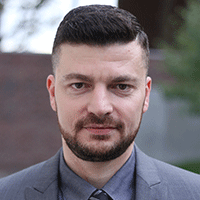
Alexander Gumennik
Indiana University Bloomington
Submission Title: Engineering Functional Monofilament Fibers
Biography: Alexander Gumennik is an Assistant Professor of Intelligent Systems Engineering (ISE) and the Fibers & Additive Manufacturing Enabled Systems Laboratory (FAMES Lab) Director at Indiana University Bloomington. He received his Ph.D. in Applied Physics (Optoelectronics) from the Hebrew University of Jerusalem, Israel, conferred in 2011 under Prof. Aharon J. Agranat's mentorship, following which he has conducted his post-doctoral research in multi-material fiber devices at MIT's Prof. Yoel Fink's group. In 2014, Prof. Gumennik joined Formlabs Inc. (Somerville, MA, USA)—a unicorn startup developing 3D printers—as a Lead Photonics Process Engineer to develop an optical portion of Fuse 1—the first Formlabs’s Selective Laser Sintering (SLS) printer, commercially launched in June 2017. Since joining Indiana University in August 2016, Prof. Gumennik's research has focused on functional fibers and textiles with data processing and biomedical capabilities for communication and regenerative medicine applications, merging modern approaches to fiber manufacturing, such as 3D Printing, with well-established, such as the thermal draw. Since 2022, Prof. Gumennik has been leading one of the technical working groups developing the product roadmaps for Advanced Functional Fabrics of America, a partner of Manufacturing USA.
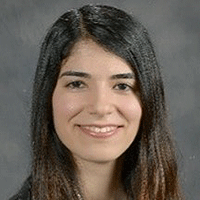
Shima Hajimirza
Stevens Institute of Technology
Submission Title: Understanding Radiation Heat Transfer in Complex Porous Media Through Analytical Renewal Theory
Biography: Dr. Shima Hajmirza is an Associate Professor of Mechanical Engineering and the director of Energy, Control and Optimization (ECO) lab at Stevens Institute of Technology. She obtained her Ph.D. in Mechanical Engineering from the University of Texas at Austin in August 2013 and then became a post-doctoral research scientist with the Oden Institute for Computational Engineering and Science. Prior to her doctoral education, she obtained a Master's degree in Mechanical Engineering from Southern Illinois University and a Master's degree in Bioengineering from the California Institute of Technology in 2009 and 2010 respectively.
Her expertise lies in the broader domains of thermal fluid sciences, radiation heat transfer, data-driven modeling and design, and the modeling of energy transfer in intricate media. Additionally, she specializes in Machine Learning/AI-based modeling and optimization, particularly applied to nanomaterials, nanotechnology, and bioengineering. With a portfolio of over 80 peer-reviewed papers (published in esteemed journals such as Nature Scientific Reports, International Journal of Heat and Mass Transfer, Journal of Solar Energy, IEEE Transactions on Sustainable Energy, etc.), her research has garnered support from US National Science Foundation (NSF), US Department of Defense (DOD), US Department of Energy (DOE), as well as industrial partners such as Qualcomm, Emerson, Chevron, and others. Notably, she has been honored with the NSF CAREER award for her contributions to the computational modeling of radiation heat transfer in porous media.
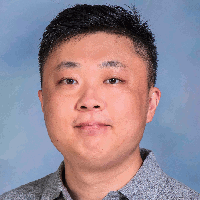
Kaiyu Hang
Rice University
Submission Title: Career: Exploring Robust Robot Manipulation Through Compliance- and Motion-Based Manipulation Funnels
Biography: Kaiyu Hang is an Assistant Professor of Computer Science at Rice University, where he leads the Robotics and Physical Interactions Lab. He is broadly interested in robotic systems that can physically interact with other robots, people, and the world. By developing algorithms in optimization, planning, learning, estimation, and control, his research is focused on efficient, robust, and generalizable manipulation systems, addressing problems that range from small scale grasping and in-hand manipulation, to large scale dual-arm manipulation, mobile manipulation, and multi-robot manipulation.
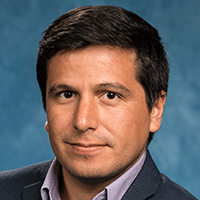
Victor Huayamave
Embry-Riddle Aeronautical University
Submission Title: A Multiscale Computational and Experimental Framework to Elucidate the Biomechanics of Infant Growth
Biography: Dr. Victor Huayamave is an Associate Professor in the Department of Mechanical Engineering at Embry-Riddle Aeronautical University. He received a PhD in Mechanical engineering from the University on Central Florida. He has received several awards including the NSF CAREER. He has significant experience leading small and large collaborative projects related to pediatric orthopaedic problems and computational mechanics. Since 2015, I have led my research group in several funded studies investigating the biomechanics of developmental dysplasia of the hip and its treatment.
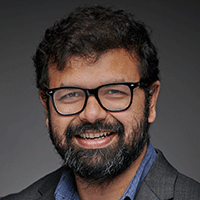
Sadik Khan
Jackson State University
Submission Title: Climate Resilient Proactive Landslide Repair
Biography: Dr. Sadik Khan is an Associate professor in the department of Civil and Environmental Engineering at Jackson State University. Dr. Khan worked more than 18 years in different projects with on the investigation, monitoring and evaluation of foundations, slopes and earth retaining systems. Dr. Khan leads and co-lead multiple projects funded by Federal and State Agencies such as National Science Foundation (NSF), Gulf Research Program, USDOT, USACE ERDC, FRA and MDOT on various aspects of sustainable, resilient and smart Geo-Infrastructure. He coauthored two technical books and 100+ peer-reviewed journals and conference proceedings on different aspects of geo-infrastructure. Dr. Khan is a technical member of AKG-20 TRB Standing Committee on Soil and Rock Properties and Site Characterization, AKG-40 TRB Standing Committee on Mechanics and Drainage of Saturated and Unsaturated Geomaterials, USSD Foundation Committee, USSD Levee Committee, ASCE GI Unsaturated Soil, and DFI Shallow Foundations committee. He is an awardee of the NSF CAREER. His research project with MDOT has received the prestigious AASHTOO SWEET 16 Award. He received the 2018 Engineer of the Year award from MS ASCE Section, 2019 Engineer of the Year award from ASCE Region 5 and 2024 Spotlight Award from Jackson State University. He is an Associate Editor of ASCE Natural Hazard Review Journal. He is a licensed engineer in the State of Texas and the State of Mississippi.

Duck Bong Kim
Tennessee Technological University
Submission Title: Wire Arc Additive Manufacturing of Molybdenum Alloy for High-Temperature Applications: Residual Stresses and Porosity Considering Ductile-to-Brittle Transition Temperature
Biography: Duck Bong Kim received his MS and PhD degrees at Gwangju Institute of Science and Technology (GIST), Republic of Korea, in 2006 and 2011. He worked as a guest researcher at National Institute of Standards and Technology (NIST) from 2011 to 2016. He has been a professor in the Department of Manufacturing and Engineering Technology at Tennessee Technological University since 2016. His research interests include metal additive manufacturing, smart manufacturing, and data analytics.
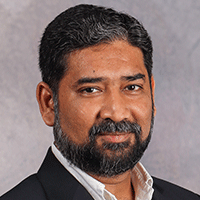
Vinayak R. Krishnamurthy
Texas A&M University
Submission Title: Breaking Space for Making Shape: Partitive Geometry for Design and Manufacturing
Biography: Vinayak Krishnamurthy is an Associate Professor in the J. Mike Walker’66 Department of Mechanical Engineering and an affiliated faculty in the Department of Computer Science at Texas A&M University. He currently holds the J. Mike Walker '66 Career Development Professorship at Texas A&M. He earned his Ph.D. in 2015 from the School of Mechanical Engineering at Purdue University and joined Texas A&M in Fall 2016.
Krishnamurthy currently directs the Mixed-Initiative Design Lab (MIDL) at Texas A&M University. His research is at the interface of geometric & topological computing, human-computer interaction, and artificial intelligence. He applies the knowledge gained in these areas to various domains such as metamaterial design, extended reality for design, computational fabrication, data-driven design, collaborative design, autonomous systems, surgical training, and engineering education. His dissertation research led to the commercial deployment of zPots, a virtual pottery app using Leap Motion controller in collaboration with zeroUI, a California-based startup. He is the recipient of multiple awards including the NSF CAREER award, ASME CIE Young Engineer Award, three best paper awards at the ASME IDETC/CIE conferences. He is also the recepient of the Peggy L. and Charles L. Brittan Teaching Award for Outstanding Undergraduate Teaching and the TAMU Association of Former Students College Level Teaching Award at Texas A&M.
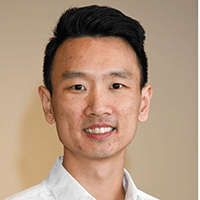
Kawai Kwok
Purdue University
Submission Title: Kawai Kwok is an Associate Professor of Aeronautics and Astronautics at Purdue University. He received his Ph.D. and M.S. degrees in Aerospace Engineering from the California Institute of Technology, and his B.S. in Mechanical Engineering from Lehigh University. Prior to joining Purdue in 2024, he was an Assistant and Associate Professor of Mechanical and Aerospace Engineering at the University of Central Florida, and a postdoctoral researcher at the Technical University of Denmark. He is a recipient of the NSF CAREER award and the NASA Robert H. Goddard Exceptional Achievement for Engineering award. His research interests are flexible and multifunctional structures, deployable concepts, portable manufacturing.
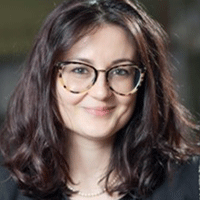
Caterina Lamuta
The University of Iowa
Submission Title: Softopus: A Soft Octopus Robot Powered by Artificial Muscles
Biography: Caterina Lamuta received her PhD in Mechanical Engineering in 2017 at the University of Calabria, Italy. In 2016 she was a visiting scholar at UIUC, and in 2017 she was selected as a Postdoctoral Fellow at the Beckman Institute, at UIUC.
She joined the Department of Mechanical Engineering at the University of Iowa (UIowa) in 2018 where she is currently an Associate Professor and director of the Smart Multifunctional Material Systems (SMMS) Lab.
Dr. Lamuta is the recipient of the 2024 AMSE SMASIS Gary Anderson Early Achievement Award, 2021 DARPA Young Faculty Award (including the DARPA Director’s Fellowship), the 2023 ONR Young Investigator Program (YIP) Award, 2022 Early Career Scholar of the Year award from Office of the Vice President for Research at UIowa, and 2022 Early Career Faculty Excellence Award from the College of Engineering at UIowa. Her research is also funded by AFOSR, NSF, and NASA, and focuses on smart and bioinspired materials, and soft robotics.
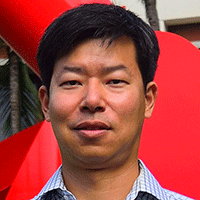
Woochul Lee
University of Maryland, College Park
Submission Title: Thermal Transport in Polymer Nanofibers Under Strain Modulation
Biography: Dr. Woochul Lee is an Associate Professor in the Department of Mechanical Engineering at the University of Hawaii at Manoa, where he has worked since January 2018. He received a BS in Mechanical Engineering (2008) from Yonsei University. He received MS (2010) and PhD (2014) in Mechanical Engineering at the University of Michigan. Afterwards, he was a postdoctoral fellow at UC Berkeley and Lawrence Berkeley National Lab. He is a recipient of the NSF CAREER Award. His research interests include nanoscale thermal transport, thermal energy conversion, quantum transport, and nanomaterials.
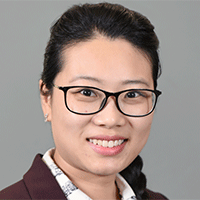
Cindy (Xiangjia) Li
Arizona State University
Submission Title: Career: A Novel Electrically-Assisted Multimaterial Printing Approach for Scalable Additive Manufacturing of Bioinspired Heterogeneous Materials Architectures
Biography: Cindy (Xiangjia) Li is an Assistant Professor in the Department of Aerospace and Mechanical Engineering at Arizona State University's School for Engineering of Matter, Transport, and Energy. Her research focuses on advancing additive manufacturing through the development of innovative multiscale and multi-material processes. Drawing inspiration from nature’s hierarchical structures, she addresses complex challenges in design and manufacturing. Dr. Li’s work primarily explores physical field-assisted photopolymerization-based printing process development, integrating bioinspired design and programmable functional materials. Her contributions have the potential to revolutionize fields such as interfacial technology, biomedical engineering, soft actuators, and flexible energy devices. Dr. Li’s research achievements are showcased through numerous publications in leading journals and presentations at premier conferences. Her recent work has earned her prestigious accolades, including Best Paper Awards at ASME MSEC 2022 and 2023, as well as Best Poster at MSEC 2024. She is also the recipient of the 2023 SME Delcie R. Durham Outstanding Young Manufacturing Engineer Award and the NSF CAREER Award. Her innovative research has garnered significant attention in the media, underscoring its impact and relevance. Additionally, Dr. Li holds several U.S. patents for her groundbreaking contributions to additive manufacturing. She has been recognized with the USC Stevens Center Innovation Commercialization Award, further validating the transformative potential of her work in advancing the field.
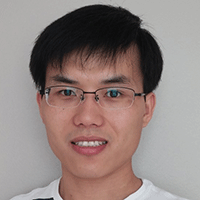
Yaofa Li
University of California, Riverside
Submission Title: Using Combined 3d Velocimetry and Lattice Boltzmann Method to Investigate the Wicking Flow on Micro-Engineered Surfaces
Biography: Dr. Yaofa Li is an Assistant Professor in the Department of Mechanical Engineering at the University of California, Riverside (UCR). Prior to joining UCR, he was an Assistant Professor at Montana State University. He obtained his Ph.D. from Georgia Tech in 2015 and completed his postdoctoral training at the University of Notre Dame, where his research was jointly supported by Notre Dame and the energy frontier research center, GSCO2. Dr. Li’s research interest focuses on developing experimental, numerical, and theoretical studies of thermal-fluid problems primarily at microscopic scales with applications in multiphase flow, biological flow, and phase change heat transfer. He is a recent recipient of the Faculty Excellence Award (MSU 2021, 2023), the Doctoral New Investigator Award (ACS, 2021), the NASA EPSCoR R3 Award (2022) and the NSF Career Award (2022).
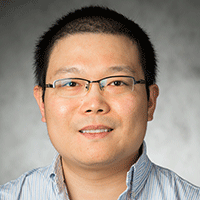
Ying Li
University of Wisconsin-Madison
Submission Title: Discovery of Multi-Functional Polyimides Through High-Throughput Screening Using Explainable Machine Learning
Biography: Dr. Li joined the University of Wisconsin-Madison in August 2022 as an Associate Professor of Mechanical Engineering. From 2015 to 2022, he was an Assistant Professor of Mechanical Engineering at the University of Connecticut and was promoted to Associate Professor. He received his Ph.D. in 2015 from Northwestern University, focusing on the multiscale modeling of soft matter and related biomedical applications. His current research interests are: multiscale modeling, computational materials design, mechanics and physics of polymers, and machine learning-accelerated polymer design. Dr. Li's achievements in research have been widely recognized by fellowships and awards, including ACS Polymeric Material Science and Engineering (PMSE) Young Investigator Award (2023), NSF CAREER Award (2021), Air Force’s Young Investigator Award (2020), 3M Non-Tenured Faculty Award (2020), and multiple best paper awards from major conferences. He has authored and co-authored more than 150 peer-reviewed journal articles, including Science Advances, Nature Communications, Physical Review Letters, etc. Dr. Li's lab is supported by multi-million-dollar grants and contracts from NSF, AFOSR, AFRL, ONR, DOE/National Nuclear Security Administration, DOE/National Alliance for Water Innovation, and industries.

Ya-Ting Liao
Case Western Reserve University
Submission Title: Understanding the Role of Buoyant Flow for Accurate and Robust Scale Modeling of Upward Flame Spread
Biography: Dr. Ya-Ting Liao is an associate professor and the faculty director of the UL Fire and Combustion Laboratories at Case Western Reserve University (CWRU). She also leads the Computational Fire Dynamics Laboratory in the Department of Mechanical and Aerospace Engineering and uses numerical modeling and experimentation to study basic fire science and fire dynamics in specific situations (e.g., forests) or in situations with unique chemistry (e.g., lithium-ion batteries). In addition to ground tests in her labs at CWRU, Dr. Liao conducts experiment on various microgravity platforms. By combining the capabilities of micro- and normo- gravity experiments with numerical modeling, Dr. Liao explores various fire phenomena and proposes new theories and correlations in fire dynamics.
Dr. Liao currently serves on the Board of the United State Section of the Combustion Institute, the Board of Advisors of the Central States Section of the Combustion Institute, and the Editorial Advisory Board of Journal of Fire Science. Dr. Liao is the recipient of the 2022 Case School of Engineering Research Award, 2020 Jack Watts Award for Outstanding Reviewer of the Fire Technology Journal, 2019 NSF CAREER Award, and 2019 CWRU Glennan Fellowships Award. Dr. Liao serves as a visiting faculty fellow at NASA Glenn Research Center in 2024.
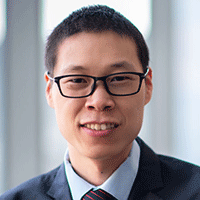
Hangjian Ling
University of Massachusetts Dartmouth
Submission Title: Longevity of Superhydrophobic Surface Due to Gas Diffusion and Turbulent Flows
Biography: Hangjian Ling is an Assistant Professor in Mechanical Engineering at University of Massachusetts Dartmouth. He received his Ph.D. from Johns Hopkins University in 2017 and was a Postdoctoral Scholar at Stanford University from 2017 to 2019. He is broadly interested in fluid dynamic problems with connections to material, biological, and environmental sciences. He develops and implements novel optical and laser technologies to characterize the fluid and particle motions across multiple length scales. His current research includes: (i) flow interaction with superhydrophobic surface for developing next generation of multi-functional materials; (ii) turbulent flow interactions with rough, soft and porous surfaces; (iii) collective animal behavior, and (iv) measuring 3D motions of living and non-living objects including bacteria, cells and bubbles. His work has been supported by NSF and ONR. He received NSF CAREER award in 2023.
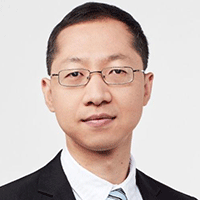
Jia (Peter) Liu
Auburn University
Submission Title: Career: Manufacturing Usa: Deep Learning to Understand Fatigue Performance and Processing Relationship of Complex Parts by Additive Manufacturing for High-Consequence Applications
Biography: Dr. Jia (Peter) Liu is an Associate Professor in the Department of Industrial and Systems Engineering at Auburn University. He graduated from Virginia Tech with a Ph.D. in Industrial and Systems Engineering and an M.S. in Statistics in 2017. He also received a B.S. and an M.S. in Electrical Engineering from Zhejiang University, China, in 2005 and 2007, respectively. He focuses on AI in advanced manufacturing, developing interpretable physics-informed data-driven modeling for complex manufacturing processes, such as additive manufacturing, semiconductor manufacturing, and electronics packaging, to achieve online process monitoring, product quality prediction, and control. He has served as PI and Co-PI of multiple government-funded projects from FAA, NSF, and NIST. He has published over 40 journal and conference papers, and his research has been featured in IISE magazine. He has been honored with several awards, including the 2023 NSF Career Award, the 2023 Ginn Achievement Faculty Fellow at Auburn University, and the 2020 Early Career Development Grant at Auburn University. He is a member of ASME, IISE, INFORMS, and SME.
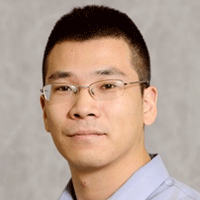
Jun Liu
North Carolina State University
Submission Title: Pushing the Lower Limit of Thermal Conductivity in Layered Materials
Biography: Dr. Jun Liu is currently an Associate Professor in the Department of Mechanical and Aerospace Engineering at North Carolina State University. Prior to this, he was a postdoctoral research associate in the Department of Materials Science and Engineering at the University of Illinois at Urbana-Champaign, from Nov 2013 to July 2015. He received his Ph.D. in Mechanical Engineering from University of Colorado at Boulder in December 2013. He earned his B.S. in 2008 from Power and Energy Engineering at Huazhong University of Science and Technology. He is the recipient of the NC State University Outstanding Teacher Award in 2023, NSF CAREER Award in 2020, and Outstanding Dissertation Award in 2013. His research interests are nanoscale heat transfer, soft matter, chiral materials, and energy conversion and storage.
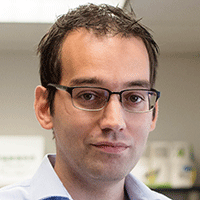
Filippo Mangolini
The University of Texas at Austin
Submission Title: On the Mercurial Behavior of Ionic Liquids at Sliding Interfaces
Biography: Filippo Mangolini received his M.Sc in Materials Engineering from Polytechnic University of Milan. After obtaining his Ph.D. in Materials Science at ETH Zurich, he moved to the University of Pennsylvania as a Swiss National Science Foundation Fellow. He was then awarded a Marie Curie Fellowship, which allowed him to move to Ecole Centrale de Lyon. Between 2015 and 2017, Filippo was a University Academic Fellow and a Marie Curie Fellow at the University of Leeds. In January 2018 Filippo joined the University of Texas at Austin, where he is currently an Associate Professor in the Department of Mechanical Engineering.

Ahmad R. Najafi
Drexel University
Submission Title: Multiscale Multiphysics Design of Multifunctional Materials and Structures
Biography: Ahmad Raeisi Najafi is an Associate Professor in the Department of Mechanical Engineering and Mechanics and the Director of the Multiscale Computational Mechanics and Biomechanics LAB (MCMB LAB). He is internationally recognized for his research in design optimization and bone biomechanics. Additionally, he serves as the Director of the NSF S-STEM AMIE Scholarships at Drexel University.
Najafi's research focuses on design optimization, damage and fracture mechanics, and orthopedic materials and implants. His group develops computational algorithms for designing multifunctional multiscale materials and structures, applicable in mechanical, biomedical, aerospace, and infrastructure fields. His research also enhances the fundamental understanding of fracture mechanics in multifunctional biological and synthetic composite materials. Additionally, he integrates computational mechanics approaches into orthopedic biomechanics to study human skeletal diseases and injuries, and to design new orthotropic materials and implants. To conduct these studies, he collaborates closely with experts in mechanics, biomechanics, civil engineering, manufacturing, and materials science. His research has been supported by sponsors such as the NSF, NIH, Pennsylvania Department of Community & Economic Development, Coulter Foundation, and DARPA.
Najafi has received several prestigious awards, including the NSF Faculty Early Career Development (CAREER) Award in 2022, the Drexel Provost Award for Outstanding Early Career Scholarly Productivity in 2023, the College of Engineering Outstanding Early-Career Research Award in 2023, and the Drexel University Career Development Award in 2019. He is an active member of several professional organizations, such as the American Society of Mechanical Engineers (ASME), the US Association for Computational Mechanics (USACM), the International Society for Structural and Multidisciplinary Optimization (ISSMO), the American Society of Biomechanics (ASB), and the Engineering Mechanics Institute (EMI).
Najafi served on the Editorial Board of the Multifunctional Materials journal from 2019 to 2022. Since 2023, he has been a member of the Early Career Special Committee of the ISSMO and one of the Editors of the ISSMO Newsletter.
Najafi earned his first Ph.D. in Biomedical Engineering from Tehran Polytechnique in 2006. He later pursued a second Ph.D. in Theoretical and Applied Mechanics at the University of Illinois at Urbana-Champaign, which he completed in 2016.
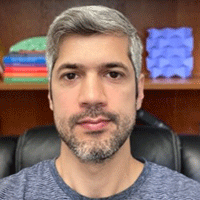
Hussein Nassar
University of Missouri
Submission Title: Geometry and Elasticity of Deployable Structures and Morphing Metamaterials
Biography: Hussein Nassar is an Assistant Professor of Mechanical and Aerospace Engineering at the University of Missouri – Columbia (MU). He attended École des Mines de Paris until 2012 while pursuing a parallel degree in Mathematics awarded by Université Paris VI in 2011. He graduated with a PhD in Mechanics from Université Paris-Est Marne-la-Vallée in 2015 and joined the faculty at MU in 2018. He recently completed two invited research stays at Sorbonne Université and at École Polytechnique.
The work of H. Nassar investigates theoretical models of continuum mechanics applicable to architected solids and shells with emphasis on interactions between geometry and elasticity in static, dynamic, linear and nonlinear regimes. His research has been supported by the U.S. National Science Foundation and the U.S. Army Research Office; he is a current recipient of the NSF CAREER Award.

Raviraj Nataraj
University of Maryland, College Park
Submission Title: Clogging: Stevens Institute of Technology
Biography: Dr. Raviraj (Ravi) Nataraj is an Assistant Professor in the Department of Biomedical Engineering at Stevens Institute of Technology. He received his Ph.D. in Biomedical Engineering at Case Western Reserve University and his Master’s in Mechanical Engineering at Stanford University. His postdoctoral work involved motor restoration (e.g., neuroprostheses, exoskeletons) and sensorimotor assessment of persons having spinal cord injury (SCI), amputation, or carpal tunnel syndrome. As an independent investigator, his research focus is motor training with computerized interfaces that rehabilitate upper-extremity function after SCI or traumatic brain injury. His lab examines how virtual reality and instrumented wearables used for motor training can leverage changes in perception and physiological responses to maximize functional outcomes. The lab’s ongoing work is done in partnership with the Bronx VA Medical Center and the Kessler Foundation, with funding from the Department of Veterans Affairs, the New Jersey Health Foundation, and the NSF (Disability and Rehabilitation Engineering CAREER award). Dr. Nataraj recently received the Stevens’ Harvey Davis Distinguished Teaching Award and has served on grant review panels for NIDILRR, NSF, and NIH.
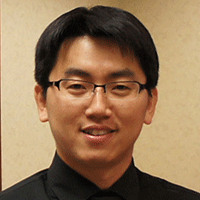
Jae Sung Park
University of Nebraska-Lincoln
Submission Title: Unraveling Predictive and Multiscale Dynamics in Turbulence for Flow Control
Biography: Dr. Jae Sung Park is Richard L. McNeel Associate Professor of Engineering in the Department of Mechanical and Materials Engineering at the University of Nebraska-Lincoln (UNL). He is a director of the Multiphysics and Multiscale Fluid Dynamics Laboratory at UNL. His research encompasses a wide range of fluid mechanics from small to large scales, involving complex fluids, rheology, active nematics, transition-to-turbulence, and turbulence. His research has been supported by the National Science Foundation (NSF), the Department of Energy, and NASA Nebraska. He was awarded the UNL College of Engineering New Faculty Teaching Award in 2020, the NSF CAREER Award in 2021, the UNL College of Engineering Research Excellence Award in 2023, and the University-wide Teaching Award in 2024. He received his B.S. from Hanyang University in 2006 and his M.S. and Ph.D. from the University of Illinois at Urbana-Champaign in 2008 and 2012, respectively. All degrees are in Mechanical Engineering. Prior to coming to UNL in 2017, Dr. Park was a postdoctoral researcher in the Department of Chemical and Biological Engineering at the University of Wisconsin-Madison from 2012 to 2016.
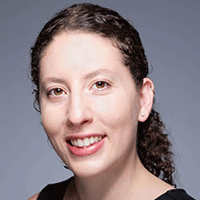
Andrea Pickel
University of Rochester
Submission Title: Optical Super-Resolution Nanothermometry via Stimulated Emission Depletion Imaging of Upconverting Nanoparticles
Biography: Andrea Pickel joined the Department of Mechanical Engineering at the University of Rochester as an Assistant Professor in July 2019. She received her Ph.D. in Mechanical Engineering from the University of California, Berkeley in May 2019, where she was supported by a National Science Foundation (NSF) Graduate Research Fellowship and a UC Berkeley Chancellor’s Fellowship. She received her B.S. in Mechanical Engineering with University and College Honors from Carnegie Mellon University in 2014. Her current research focuses on harnessing the unique properties of luminescent materials to develop nanothermometry techniques for challenging operating environments. Andrea is the recipient of an American Chemical Society Petroleum Research Fund (ACS PRF) Doctoral New Investigator Award (2020), a University of Rochester Furth Fund Award (2021), and an NSF CAREER Award (2022), and she was named a Scialog Fellow for Automating Chemical Laboratories (2024). Her teaching contributions have been recognized with the G. Graydon Curtis ’58 and Jane W. Curtis Award for Non-Tenured Faculty Teaching (2023).
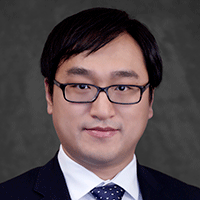
Jinglei Ping
University of Massachusetts Amherst
Submission Title: Highly Rapid and Sensitive Nanomechanoelectrical Detection of Nucleic Acids
Biography: Jinglei Ping is an Associate Professor of Mechanical and Industrial Engineering at the University of Massachusetts Amherst. He is associated with the Center for Personalized Health Monitoring at the Institute for Applied Life Sciences and holds a secondary affiliation with Biomedical Engineering. He received his B.S. and M.Phil in Physics from Sun Yat-sen University in 2003 and 2008, respectively, and his Ph.D. in Chemical Physics from the University of Maryland–College Park in 2013. Jinglei Ping served as an occupational trainee at Monash University, followed by roles as a postdoctoral fellow and then research associate at the University of Pennsylvania. In 2018, he joined the University of Massachusetts Amherst as a tenure-track Assistant Professor, where he leads the Nano/Bio Interfaces and Applications Lab. The research of Jinglei Ping focuses on developing novel low-dimensional materials and nanostructures, elucidating and harnessing innovative physicochemical principles at micro-/nanoscale bio-material interfaces, and building devices and systems for processing, detecting, and stimulating biosystems. His research integrates concepts and methods from materials science, physics, and engineering to address challenges in health, diagnostics, and environmental monitoring. Jinglei Ping is the recipient of the AFOSR YIP Award in 2019, the NIBIB Trailblazer Award in 2021, the NIGMS MIRA Award in 2023, and the NSF CAREER Award in 2024.

Anamika Prasad
University of Michigan
Submission Title: Mechanics of Next-Generation Composites Using Cellulose and Bioinspired Interfaces
Biography: Anamika Prasad is an Associate Professor in the Biomedical Engineering Department at Florida International University (FIU) with a joint appointment with the Mechanical and Materials Engineering. She received her Ph.D. from MIT and postdoctoral training from Stanford University. Dr. Prasad's research is at the intersection of materials science, structural mechanics, and biological systems, with an application focus on biomedical engineering, plant biomechanics, composites, and devices for precision agriculture and healthcare. Her work has been supported through NSF CAREER, NASA, and DOD grants. Beyond research, Dr. Prasad is keen on using materials education as a vehicle for STEM workforce development, current focus on rural and Native American communities.
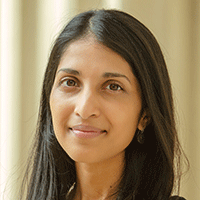
Ritu Raman
MIT
Submission Title: Mechanics of Biological Motor Control: Assembly, Maturation, and Repair at the Neuromuscular Interface
Biography: Ritu Raman, PhD is the Eugene Bell Career Development Assistant Professor of Mechanical Engineering at MIT. Her lab is centered on 4D tissue engineering of biological actuators for applications in medicine and machines. Ritu's research has been recognized with the NSF CAREER Award, the Army Research Office YIP Award, and the Office of Naval Research YIP Award. She is also the recipient of the Spira Award for Excellence in Teaching at MIT and the author of the MIT Press book Biofabrication. She is passionate about increasing diversity in STEM and has championed many initiatives to empower women in science, including serving as a national AAAS IF/THEN ambassador. Ritu received her BS from Cornell University and her PhD as an NSF Fellow at the University of Illinois at Urbana-Champaign. She completed her postdoctoral research as a L’Oreal For Women in Science Fellow and NASEM Ford Foundation Fellow with Prof. Robert Langer at MIT.
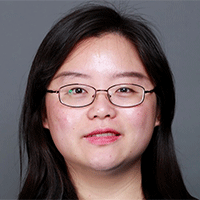
Siyuan Rao
Binghamton University, SUNY
Submission Title: Material Engineering Toolset for Neurological Interfaces
Biography: Dr. Siyuan Rao is an Assistant Professor in the Department of Biomedical Engineering. She launched her Neurobiological Interfaces Lab (www.syraolab.com) in 2021. Dr. Rao obtained her Ph.D in Materials Physics and Chemistry at Beihang University in 2015 and completed her postdoctoral training in neuroengineering and bioelectronics with Profs. Polina Anikeeva and Guoping Feng at MIT in 2020 with Simons Postdoctoral Fellowship and NIH K99 award. Her team is developing new engineering tools to facilitate the investigation of neurobiological interfaces. Her collaborative and interdisciplinary work across engineering and neuroscience has led to fruitful research outcomes with publications in Cell, Nature Nanotechnology, Nature Methods, Nature Communications, Science Advances et. al. She is the awardee of the NIH K99/R00 program (2019), NARSAD BBRF Young Investigator Grant (2021), AFOSR Young Investigator Program (2022) and NSF CAREER Program (2023).
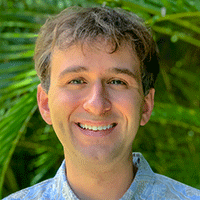
Tyler Ray
University of Hawaii at Manoa
Submission Title: Additive Manufacturing Acoustofluidic Devices With Spatially Engineered 3d-Fluidics
Biography: Tyler R. Ray is an Assistant Professor of Mechanical Engineering at the University of Hawaii at Manoa. He received a B.S. (2008) and M.S. (2010) in Mechanical Engineering from the University of South Carolina, and a Ph.D. (2015) in Mechanical Engineering from the University of California, Santa Barbara. His research interests are at the intersection of 3D printing functional materials, lab-on-chip diagnostics, and wearable sensing.

Chang-Han Rhee
Northwestern University
Submission Title: Unraveling a Central Mystery of AI: Heavy-Tail Perspective
Biography: Chang-Han Rhee is an Assistant Professor in Industrial Engineering and Management Sciences at Northwestern University. Before joining Northwestern University, he was a postdoctoral researcher at Centrum Wiskunde & Informatica and Georgia Tech. He received his Ph.D. from Stanford University. His research interests include applied probability, stochastic simulation, experimental design, and the theoretical foundation of machine learning. His research has been recognized with the 2016 INFORMS Simulation Society Outstanding Publication Award, the 2012 Winter Simulation Conference Best Student Paper Award, the 2023 INFORMS George Nicholson Student Paper Competition (2nd place), and the 2013 INFORMS George Nicholson Student Paper Competition (finalist). Since 2022, his research has been supported by the NSF CAREER Award.
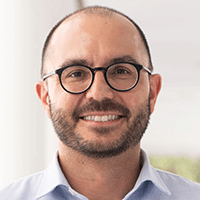
Landolf Rhode-Barbarigos
University of Miami
Submission Title: Career: Static, Dynamic and Kinematic Analysis and Optimization of Tensegrity Structures Through Cellular Morphogenesis
Biography: Landolf Rhode-Barbarigos received his PhD in 2012 from Ecole Polytechnique Fédérale de Lausanne (EPFL) in Switzerland. From 2012 to 2014, he joined Princeton University as Postdoctoral Researcher in the Form-Finding Lab. Since January 2015, he has been Civil & Architectural Engineering Professor at the University of Miami. His research explores structural morphology as umbrella concept. He employs this concept to identify solutions and design more sustainable and resilient structures through the study of structural and architectural systems, such as tensegrity and hexagonal lattice structures, with applications varying from infrastructure systems and space structures to marine and coastal protection. His work has been supported by grants from Transportation Research Board (TRB), National Science Foundation (NSF), National Institute of Standards and Technology (NIST), Defense Advanced Research Projects Agency (DARPA), and others, and recognized with prestigious awards, including the NSF CAREER award and the Academy of Science Engineering and Medicine of Florida (ASEMFL) Rising Stars award. He currently serves on two American Society of Civil Engineering (ASCE) committees, the Aerospace Space Engineering & Construction Committee and the Esthetics in Design Committee, as he enjoys expanding engineering boundaries and supporting artistic and educational initiatives that integrate engineering and the arts.
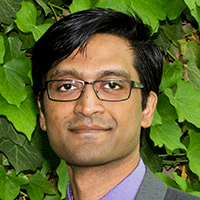
Abhishek Saha
University of California San Diego
Submission Title: Dynamics of Droplet Impact on Liquid Films: Coalescence and Mixing
Biography: Abhishek Saha is an Associate Professor in the Department of Mechanical and Aerospace Engineering at the University of California San Diego. His research group focuses on three areas: (1) dynamics of droplets in the context of propulsion, manufacturing, and disease transmission; (2) Dynamics and instabilities in reactive flows, and (3) Dynamics of flow-structure interactions. Before joining UCSD in 2018, Prof. Saha was a research staff at Princeton University. He completed his Ph.D. at the University of Central Florida, where he received the university-wide Outstanding Dissertation award. Prof. Saha received the NSF Faculty Early Career Development (CAREER) Award in 2022.
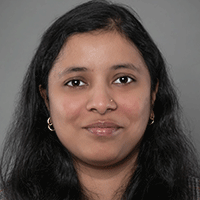
Oishi Sanyal
University of Maryland, College Park
Submission Title: Membranes as a Tool to Decarbonize Fertilizer Production
Biography: Dr. Oishi Sanyal is the Wayne and Kathy Richards Faculty Fellow and an Assistant Professor in the Department of Chemical and Biomedical Engineering at West Virginia University. She leads a research program focused on membranes for water treatment and gas separation. She has published 21 peer-reviewed journal articles and delivered multiple conference presentations. In 2024, Dr. Sanyal received the NSF CAREER Award.In addition, she was selected as a 2022 Futures Issue Investigator by the AIChE Journal and was one of 100 early-career engineers selected to participate in the NAE Frontiers of Engineering Symposium in 2021. Prior to joining WVU, Dr. Sanyal was a postdoctoral researcher at Georgia Tech. She received her PhD in Chemical Engineering from Michigan State University and her B.S from Manipal University (India).
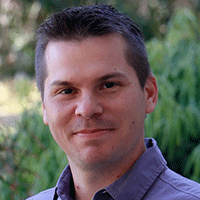
Alban Sauret
University of Maryland, College Park
Submission Title: Clogging: The Self-Sabotage of Suspensions Flows
Biography: Alban Sauret is an incoming Associate Professor and Clark Faculty Fellow in the Department of Mechanical Engineering at the University of Maryland, College Park. After a BS, MS, and PhD in Physics obtained in France and a Postdoctoral Research position at Princeton University (USA), he joined the CNRS in France between 2014 and 2018 in a joint academic and industrial laboratory (Saint-Gobain). He then moved to UC Santa Barbara in 2018 as an Assistant Professor and was promoted to Associate Professor with tenure in 2022. His research lies at the intersection of soft matter, complex fluids, interfacial dynamics, and granular physics, aiming to understand the dynamics of multiphase systems for a broad range of applications from manufacturing to water sustainability or geosciences. He received various awards, such as a Soft Matter Emerging Investigator Award in 2017 and Pioneering Investigator Award in 2024 from the Royal Society of Chemistry, an NSF CAREER Award in 2020, an American Physical Society Milton van Dyke award in 2021, the DSOFT Gallery of Soft Matter Awards in 2023 and 2024.
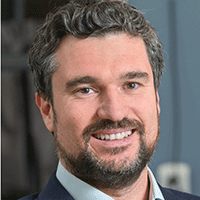
Fabrizio Sergi
University of Delaware
Submission Title: Neuromechanics of Human-Robot Interaction via Robot-Assisted In-Vivo Imaging of Neuromuscular Function
Biography: Fabrizio Sergi is an associate professor of biomedical and mechanical engineering at the University of Delaware, where he directs the Human Robotics Lab. His research focuses on the development of robotic devices for physical interaction with humans, and on their application in neurorehabilitation, movement augmentation, and as advanced tools to study human sensorimotor control. Dr. Sergi has developed a family of MRI-compatible robots that can be used in conjunction with functional Magnetic Resonance Imaging to study neural function enabling the control of human movements. Dr. Sergi received his B.S., M.S., and PhD degrees in biomedical engineering from the Università Campus Bio-Medico di Roma in Rome, Italy.
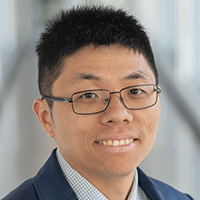
Chen Shen
Rowan University
Submission Title: Smart Surface Acoustic Wave Devices With Tunable and Reconfigurable Features
Biography: Dr. Chen Shen is currently an Assistant Professor in the Department of Mechanical Engineering at Rowan University. His research interests are in the broad area of acoustics, encompassing acoustic metamaterials, wave-matter interaction, wave propagation, to ultrasound and acoustofluidics, with applications in noise and vibration control, structural health monitoring, biomedical engineering, and so on. He obtained his bachelor’s degree from Nanjing University in 2012 and Ph.D. degree in Mechanical Engineering at North Carolina State University in 2016, respectively. Dr. Shen has published over 60 peer-reviewed articles in the field of architected materials and acoustics, including articles in Physical Review Letters, Nature Communications, and Science Advances. He also holds several U.S. patents related to acoustic technologies. He is a recipient of the National Science Foundation CAREER Award, Chinese Government Award for Outstanding Self-financed Students Abroad, EPL Distinguished Referee, PIERS Young Scientist Award, Frances R. Lax Fund for Faculty Development, and ASME Rising Star of Mechanical Engineering. He is an Associate Editor of Frontiers in Materials and an Editorial Board Member of Micromachines. In addition to that, he also served as Guest Associate Editor for Frontiers in Mechanical Engineering and Frontiers in Physics. He enjoys traveling and staying with family in his leisure time.
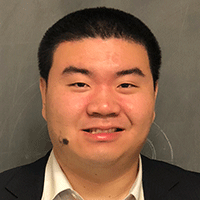
Chengzhi Shi
University of Michigan
Submission Title: Acoustic Angular Momentum Propagation in Complex Media and Applications for Medicine and Communications
Biography: Dr. Chengzhi Shi is an Associate Professor in the Department of Mechanical Engineering at the University of Michigan. Before joining the University of Michigan, he was an Assistant Professor in the GWW School of Mechanical Engineering at Georgia Tech. Dr. Shi earned his Ph.D. degree from the University of California, Berkeley in 2018 and his M.S. and B.S. degrees from Shanghai Jiao Tong University in 2013 and 2010. His research interests include physical acoustics, wave propagation, metamaterials, ultrasound imaging, and therapeutic ultrasound. He is an Academic Editor in the Editorial Board for Shock and Vibration and a Leading Guest Editor for a special issue of Frontiers in Mechanical Engineering in 2020-2021. He is a co-organizer and co-chair for Symposia of the ASME International Design Engineering Technical Conference, and Sessions of the Meetings of Acoustical Society of America as well as the elected chair of the Gordon Research Conference on In Vivo Ultrasound Imaging. He has published many highly cited papers in renowned journals including Science, PNAS, and Nature Communications. Dr. Shi has also won prestigious awards including the NSF CAREER and the ONR YIP awards.
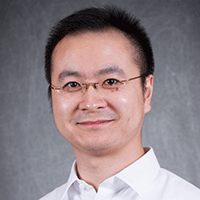
Kenan Song
University of Georgia
Submission Title: 3d Printing-Enabled Nanoparticle Assembly for Versatile Applications
Biography: Kenan Song did his Postdoc at MIT (Cambridge, MA) between 2015 and 2017 in the Department of Materials Science and Engineering & Department of Chemical Engineering (Advisers: Prof. Michael F. Rubner & Prof. Robert E. Cohen). Before that, Kenan obtained his Ph.D. in Mechanical Engineering from Northeastern University (Boston, MA) in May 2015 (Advisor: Professor Marilyn L. Minus).
Awards Kenan Song has received include the following:
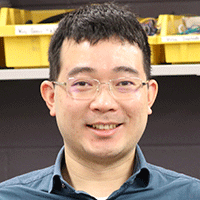
Xuan Song
University of Iowa
Submission Title: Binder-Free Additive Manufacturing of Ceramics Using Hydrothermal-Assisted Jet Fusion
Biography: Dr. Xuan Song is an Associate Professor and James A. Chisman Faculty Fellow in the Department of Industrial and Systems Engineering at the University of Iowa (UIowa). His group specializes in the design, manufacturing, and diagnostics of extreme materials that operate under high-temperature and high-strain-rate conditions. Their current interest centers on studying how gentle and versatile material forming mechanisms found in nature can be leveraged to advance next-generation manufacturing processes for ceramics and energetic materials with enhanced sustainability and multi-scale tunability. They also utilize multi-scale in-situ experimental tools, including high strain-rate dynamic testing, high-speed optical imaging, and high-speed thermometry, to probe the process and material dynamics under extreme conditions. Dr. Song is a recipient of the US National Science Foundation CAREER Award, the US Air Force Office of Scientific Research (AFOSR) Young Investigator Award, and SME Outstanding Young Manufacturing Engineer Award. He earned his Ph.D. in industrial engineering from the University of Southern California in 2016.

Govind Srimathveeravalli
University of Massachusetts Amherst
Submission Title: Modulating Endothelial Cell Function Using Targeted Electrical Stimulation
Biography: Dr. Srimathveeravalli is an Asst. Professor in the Dept. of Mechanical and Industrial Engineering of Univ. Massachusetts, Amherst. Prior to joining UMass, he was a faculty In the Dept. of Radiology at Memorial Sloan Kettering Cancer Center. Hi lab studies the interaction of non-ionizing energy and biology at multiscale resolution (sub-cellular – organ). Knowledge gained from experiments in his lab guides the development of medical devices with application to tissue engineering, mechanobiology, tumor ablation and drug delivery. He has published 55 peer reviewed journal articles, has authored multiple textbook chapters on cancer ablation, and has been invited to speak at national and international symposia on cancer therapy. His research has been supported by grants from the NIDDK, NCI, NSF, Dept. of Defense CDMRP, industrial contracts, and various philanthropic foundations.
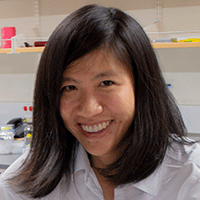
Judith Su
The University of Arizona
Submission Title: Ultra-Sensitive, Selective, and Label-Free Optical Sensing for Fundamental Science, Environmental Monitoring, and Translational Medicine
Biography: Judith Su is a Craig M. Berge Faculty Fellow and an Associate Professor in Biomedical Engineering and an Associate Professor in Optical Sciences at the University of Arizona. Judith received her B.S. and M.S. from MIT in Mechanical Engineering and her Ph.D. from Caltech in Biochemistry & Molecular Biophysics. Her lab focuses on building next generation optical sensing platforms and, with these sensors, collaborating with top researchers to solve the most significant and pressing problems in science, medicine, and issues confronting society. She is a recipient of an NSF CAREER award, an NIH R35 Outstanding Investigator Award, an American Society of Laser Surgery and Medicine Young Investigator Award, the Journal of Physics Photonics 2023 Early Career Award, and is one of the 2024 Photonics100 which recognizes the industry’s most innovative people. She was a Siegman International School on Lasers Lecturer and a Scialog: Chemical Machinery of the Cell Fellow. She was on the Board of Scientific Counselors for the National Institute for Occupational Safety and Health (NIOSH). She gave a keynote talk at SPIE Photonics West 2022 and was the general co-chair for Optica's 2023 Advanced Photonics Congress, Integrated Photonics Research (IPR) Conference in Busan, Korea and in 2024 in Quebec City, Canada. She is serving again as IPR’s co-general chair in 2025 in Marseille, France.

Amirtaha Taebi
Mississippi State University
Submission Title: Can Newborn Chest Vibrations Provide a New Method for Cardiovascular Health Assessment?
Biography: Dr. Amirtahà Taebi is an Assistant Professor of Biomedical Engineering at Mississippi State University. He is a National Science Foundation (NSF) CAREER awardee. Dr. Taebi is an Associate Editor in BMC Research Notes, an Editorial Board Member of Scientific Reports, and a Guest Editor in several journals including Bioengineering. The goal of his research is to develop noninvasive and remote methods and devices for cardiovascular monitoring. His research has been supported by local, state, and federal agencies, including the NSF and Mississippi Institutions of Higher Learning.
Before joining MSU, he completed his postdoctoral training in the Department of Biomedical Engineering at the University of California, Davis from 2018 to 2021. In the industrial setting, he led the Advanced Signal Processing team at Infrasonix, Inc., a biomedical engineering start-up based in GA, from 2020 to 2021. Dr. Taebi is a member of several professional societies including the American Heart Association, the American Society of Mechanical Engineers, and the Institute of Electrical and Electronics Engineers.
Dr. Taebi received his Ph.D. in Mechanical Engineering from the University of Central Florida, Orlando, in 2018 after completing his M.Sc. in Biomedical Engineering at Politecnico di Milano, Italy, in 2013. He earned his B.Sc. in Mechanical Engineering from Sharif University of Technology, Iran, in 2010.
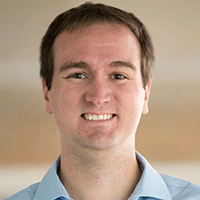
Aaron Towne
University of Michigan
Submission Title: Reduced-Complexity Models for Transitional and Turbulent Flows
Biography: Aaron Towne is an Assistant Professor in the Department of Mechanical Engineering at the University of Michigan. His research develops reduced-complexity models that can be used to understand, predict, and control turbulent flows, using both physics-based and data-driven methods. Applications include aeroacoustics, aerodynamics, and wall-bounded flows, among others. Before joining the faculty at Michigan, he was a Postdoctoral Fellow in the Center for Turbulence Research at Stanford University. He received his PhD and MS degrees from the California Institute of Technology and his BS from the University of Wisconsin-Madison. He is a recipient of the 2020 Young Investigator Program Award (YIP) from the Air Force Office of Scientific Research (AFOSR), a 2022 National Science Foundation (NSF) CAREER Award, the 2024 Young Investigator Program Award (YIP) from the Office of Naval Research (ONR), and multiple best paper awards from the American Institute of Aeronautics and Astronautics (AIAA) and American Society of Mechanical Engineers (ASME).

Ryan Truby
Northwestern University
Submission Title: Self-Sensing Artificial Muscle Tissues for Locomotion in Soft Machines
Biography: Ryan Truby is the June and Donald Brewer Junior Professor of Materials Science and Engineering and Mechanical Engineering at Northwestern University. His research broadly aims to advance machine intelligence by material design. He and his team in the Robotic Matter Lab are developing novel soft actuators and sensors, rapid multimaterial 3D printing methods, and machine learning-based control strategies for soft sensorized robots. Ryan’s research also includes work in 3D printing vascularized tissue constructs, soft electronics, artificial muscles, and architected materials. Prior to Northwestern, Ryan was a Postdoctoral Associate at MIT’s Computer Science and Artificial Intelligence Lab, and he received his Ph.D. in Applied Physics from Harvard University. Ryan is the recipient of a 2023 DARPA Young Faculty Award, 2022 Office of Naval Research Young Investigator Award, 2022 Air Force Office of Scientific Research Young Investigator Award, the Outstanding Paper Award at the 2019 IEEE International Conference on Soft Robotics, an Inaugural 2018 Schmidt Science Fellowship, and the Gold Award for Graduate Students from the Materials Research Society in 2017.
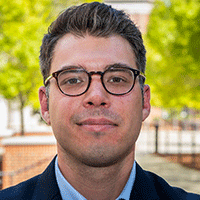
Nicholas Tsolas
Auburn University
Submission Title: Low-Temperature Plasma Assisted Combustion of Oxygenated Fuels for Cleaner and Sustainable Mobility
Biography: Dr. Nicholas Tsolas is an Associate Professor in Mechanical Engineering at Auburn University. He obtained his B.A.Sc. and M.A.Sc. from the University of Toronto in 2008 and 2010, respectively, and earned his Ph.D. from the Pennsylvania State University in 2015. Previously, he was a postdoctoral associate at the Massachusetts Institute of Technology (MIT) participating in an automotive industry led research consortium. Since 2018, he leads the Applied Energy and Thermal Research Laboratory (AETHERLab), which focuses on investigating and elucidating solutions to enable next generation sustainable energy technologies and heat-transfer devices. The lab’s research efforts primarily leverage a range of experimental and computational initiatives involving heat-transfer, plasma physics, combustion and chemical reactive systems, and laser/optical diagnostics. As such, he has been PI on several federally funded research projects, sponsored by NASA, the DOE, the NSF, including the CAREER award in 2023, and industry. His research efforts have led to 50+ published/peer-reviewed journal articles, conference proceedings and invited presentations.
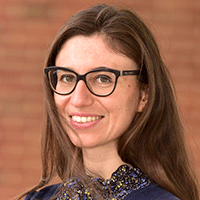
Eleonora Tubaldi
University of Maryland, College Park
Submission Title: Reconfigurable Dynamic Metamaterials Interacting With Flowing Fluids
Biography: Dr. Tubaldi is Assistant Professor in the Department of Mechanical Engineering at the University of Maryland, College Park. She received her Ph.D. degree at McGill University in Mechanical Engineering. Her research interests sit at the interface of nonlinear dynamics, fluid-structure interaction, and soft matter for applications in mechanical metamaterials, soft robotics, and biomechanics. Recently, she has been awarded the 2024 ASME Henry Hess Early Career Publication Award, 2023 NSF CAREER Award, and the 2020 Haythornthwaite Young Investigator Award from the ASME Applied Mechanics Division.
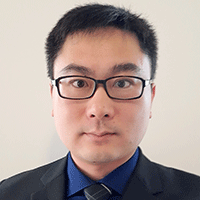
Wei Wang
University of Tennessee, Knoxville
Submission Title: Fluorine-Free Liquid-Repellent Surfaces
Biography: Dr. Wei Wang is an Assistant Professor in the Department of Mechanical, Aerospace and Biomedical Engineering at the University of Tennessee, Knoxville (UTK). Prior to joining the UTK in 2020, he was a postdoctoral research scholar in the Department of Mechanical and Aerospace Engineering at the North Carolina State University. He received his Ph.D. degree in Mechanical Engineering from Binghamton University in 2014. He is the leading author or co-author of over 30 peer-reviewed journal articles. He is the recipient of NSF CAREER Award and Ralph E. Powe Junior Faculty Enhancement Award. His current research interests include liquid-repellent surfaces, wetting phenomena on soft surfaces, and membranes with special wettability.

Dr. Wenzhuo Wu
Purdue University
Submission Title: Quantum Manufacturing of Heterogeneous Lateral Semiconductor-Superconductor Junctions (Q-Meleon)
Biography: Dr. Wenzhuo Wu is a Professor in the School of Industrial Engineering and a University Faculty Scholar at Purdue University. Dr. Wu received his Ph.D. from Georgia Institute of Technology in Materials Science and Engineering in 2013. Dr. Wu’s research interests include the design, manufacturing, and integration of nanomaterials for applications in energy, electronics, optoelectronics, and wearable devices. He was a recipient of the Oak Ridge Associated Universities Ralph E. Powe Junior Faculty Enhancement Award in 2016, American Society of Civil Engineers (ASCE) Sustainable Development Award in 2018, the Society of Manufacturing Engineers Barbara M. Fossum Outstanding Young Manufacturing Engineer Award in 2019, Journal of Materials Chemistry A Emerging Investigator in 2019, Advanced Materials Interfaces Hall of Fame in 2020, the ARO Young Investigator Award in 2020, the NSF Early CAREER Award in 2021, the Minerals, Metals & Materials Society (TMS) Functional Materials Division (FMD) Young Leaders Professional Development Award in 2022, Microsystems & Nanoengineering (MINE) Young Scientist Award from Nature Publishing Group in 2022, Purdue College of Engineering Faculty Excellence Award for Early Career Research in 2022, Advanced Materials Technologies Hall of Fame in 2022, an invited participant in the first U.S.-Africa Frontiers of Science, Engineering, and Medicine Symposium in 2022, an invited participant in the Arab-American Frontiers of Science, Engineering, and Medicine symposium in 2023, Sensors Young Investigator Award in 2022, an elected Fellow of Royal Society of Chemistry (FRSC), and an elected Fellow of Royal Society of Arts (FRSA).
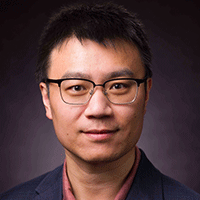
Wenjie Xia
Iowa State University
Submission Title: Multiscale Modeling of Complex Behaviors of Nano-Crumples
Biography: Dr. Wenjie Xia is an Associate Professor in the Department of Aerospace Engineering at Iowa State University. He received his Ph.D. in Civil and Environmental Engineering from Northwestern University in 2016, followed by his postdoc training at the National Institute of Standards and Technology. His research focuses on the computational design and modeling of hierarchical multifunctional materials, employing multiscale and data-driven modeling techniques. Dr. Xia has authored over 100 peer-reviewed papers in renowned journals, including Matter, Science Advances, Nano Letters, ACS Nano, and Advanced Materials, contributing to advancements in multiscale modeling, computational design, and nanoscale sciences. Dr. Xia’s research has garnered support from various federal and state funding agencies, including NSF, ONR, ARO, DOE, and NASA. He receives several prestigious awards, including the NSF CAREER Award, ACS PMSE Young Investigator Award, ND-ACES Early Career Faculty Award, Materials Genome Initiative (MGI) Fellowship, and APS Frank J. Padden Award Finalist. Notably, his research has been recognized by the National Institute of Standards and Technology (NIST) through the NIST-MML Accolade for Technical Excellence "for leading the development of a new multiscale modeling approach for glass-forming polymer materials".
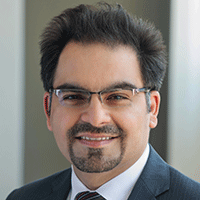
Hessam Yazdani
University of Missouri
Submission Title: Machine Learning-Assisted Calibration of Force Fields for Atomistic Simulation of Polymer Nanocomposites
Biography: Dr. Hessam Yazdani is an associate professor of civil and environmental engineering and the director of the Sustainable Infrastructure, Geotechnics, and Materials (SIGMa) lab at the University of Missouri, Columbia. He specializes in experimental and computational multiscale mechanics of polymer composites, geotechnical engineering, and optimization. His research focuses on fostering sustainability and resilience in civil and marine infrastructure by designing high-performance, sustainable, multifunctional materials and addressing geotechnical aspects of renewable energy systems.
Dr. Yazdani has over 70 publications in books, journals, and conference proceedings. His work has been recognized with several prestigious national and international awards, including the NSF CAREER Award, the DURIP Award from the Air Force Office of Scientific Research (AFOSR), the Deep Foundations Institute (DFI) Best Student Paper Award, and an ASTM International Project Grant.
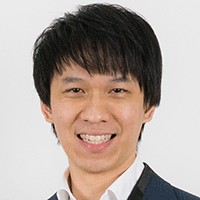
Jingjie Yeo
Cornell University
Submission Title: Bacterial Multiphysical Interactions With Hard and Soft Materials Interfaces: Towards Computational Design of Engineered Living Materials
Biography: Prof. Jingjie Yeo is an assistant professor in Cornell University’s Sibley School of Mechanical and Aerospace Engineering. He is the Principal Investigator at the J² Lab for Engineering Living Materials. The overarching goal of his research program is to lead advances in computationally designing and characterizing environmentally sustainable materials, with a focus on bacteria-based engineered living materials (ELMs) and the biopolymers that they produce. He is also a co-instructor in Station1, a social nonprofit organization dedicated to building the foundations of the university of the future through educational opportunity and socially-directed frontier STEM education, research, and internships. Prof. Jingjie Yeo is the recipient of multiple awards, including the NSF's most prestigious award, the NSF CAREER award, and the highest teaching award in Cornell's College of Engineering, the Dennis G. Shepherd Excellence in Teaching Award. Before joining Cornell University in 2020, Prof. Yeo was a research scientist in the Institute of High Performance Computing, Singapore where he helped develop cutting-edge, silk-based cosmeceuticals. Prior, he was a postdoc at both Tufts University and Massachusetts Institute of Technology, where he developed and performed numerous multiscale simulations with density functional theory and fully-atomistic to coarse-grained molecular dynamics modeling on a broad variety of biomaterials such as squid skin, silk and silk-elastin-like proteins, and graphene. He received both his Ph.D. and his B.Eng. degrees from the School of Mechanical and Aerospace Engineering in Nanyang Technological University Singapore.
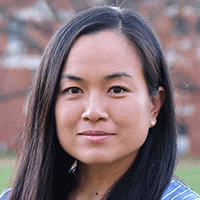
Kyoko Yoshida
University of Minnesota
Submission Title: Computational Models of Soft Tissue Growth and Remodeling During Pregnancy
Biography: Dr. Kyoko Yoshida, Ph.D., is an Assistant Professor in the Department of Biomedical Engineering at the University of Minnesota. She previously completed her postdoctoral training at the University of Virginia. She obtained her Ph.D. in Mechanical Engineering from Columbia University as an NSF Graduate Research Fellow and her B.S. in Mechanical Engineering from the University of Notre Dame. Her research focuses on the growth and remodeling biomechanics of soft tissues, including the cervix, uterus, and heart. Specifically, she uses computational and experimental approaches to understand how mechanical and hormonal signaling interact to control maternal soft tissue adaptations during pregnancy to support both mother and baby for a healthy pregnancy.
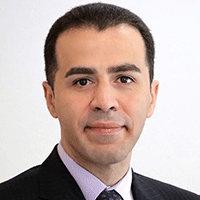
Mostafa Yourdkhani
Arizona State University
Submission Title: Additive Manufacturing of Polymer Composites via in-situ Polymerization
Biography: Dr. Mostafa Yourdkhani is an Associate Professor in the School of Manufacturing Systems and Networks (MSN) at Arizona State University (ASU). He received his PhD in Mechanical Engineering from McGill University and was a postdoctoral research associate at the Beckman Institute for Advanced Science and Technology at the University of Illinois at Urbana-Champaign prior to starting his independent faculty career. Dr. Yourdkhani has received several awards and recognitions for his research, including the CAREER award from the National Science Foundation (NSF), Early Investigator Award from ACS Polymeric Materials: Science and Engineering (PMSE), and Young Scientist Award from International Contest for Innovation (iCANX). His main research interests include advanced and sustainable manufacturing of polymer composites, digital manufacturing of structural composites, processing science of composites, multifunctional materials, self-healing materials, and bio-inspired material design.
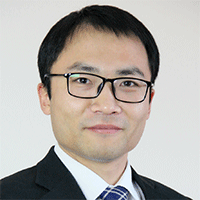
Kai Yu
University of Colorado Denver
Submission Title: 3d/4d Printing of Multifunctional Active Composites With Dynamic Molecular Bonding
Biography: Dr. Kai Yu currently is an Associate Professor in Mechanical Engineering at University of Colorado Denver. He earned his Bachelor’s degree in Engineering Mechanics from Harbin Institute of Technology (China) in 2008, and received his Ph.D. degree in Mechanical Engineering from Georgia Institute of Technology in 2015. After one-year postdoctoral training at Georgia Tech, he joined CU Denver in 2016 as an Assistant Professor. Dr. Yu’s research focuses on studying the mechanical and physical behaviors of contemporary polymers and composites, as well as developing new 3D printing technologies to promote their applications. He is particularly interested in materials that are crucial for national interests, including recyclable and sustainable polymers, energy dissipative materials, and shape-changing polymers. Using an integrated experimental-theoretical-computational approach, Dr. Yu’s research aims to advance fundamental understanding of material properties and the manufacturing process, aid in design and performance optimization, and further explore uncovered behaviors and potentials of the materials and structures. In 2021, Dr. Yu received the NSF CAREER Award from the Program of Mechanics of Materials and Structures.
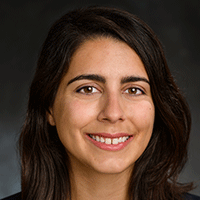
Antonia Zaferiou
Stevens Institute of Technology
Submission Title: CAREER: Adaptive Sonification to Improve Balance During Everyday Mobility
Biography: Dr. Antonia Zaferiou is an Assistant Professor in Biomedical Engineering and a Presidential Faculty Fellow at Stevens Institute of Technology, where she directs the Musculoskeletal Control and Dynamics Lab. Dr. Zaferiou began her education studying Mechanical Engineering at The Cooper Union and continued to University of Southern California, where she earned her master’s and doctoral degrees in Biomedical Engineering. She was a postdoctoral fellow at the University of Michigan in the Department of Mechanical Engineering before becoming a faculty member in the Department of Orthopedic Surgery at Rush University Medical Center and the Director of Sports Medicine Motion Analysis. Now at Stevens, her research has been funded by an NSF CAREER grant, the Interdisciplinary Rehabilitation Engineering Research Career Development program (NIH-funded K-12 program), and Major League Baseball grants. Throughout her career, she has demonstrated steadfast dedication to broadening participation in STEM by hosting events that encourage young students from diverse backgrounds to identify with and pursue STEM careers.
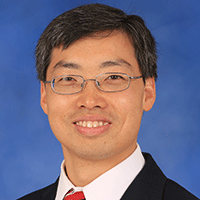
Guangsheng Zhang
The University of Alabama in Huntsville
Submission Title: Understanding Internal Short Circuit Caused Thermal Runaway of Li-Ion Cells Through In-Situ Diagnosis
Biography: Dr. Guangsheng Zhang is an Associate Professor in the Department of Mechanical & Aerospace Engineering at The University of Alabama in Huntsville (UAH). Before joining UAH in 2017, Dr. Zhang was a Research Associate at the Electrochemical Engine Center at The Pennsylvania State University. His research interests focus on the fundamental understanding of thermal-electrochemical coupled phenomena in batteries and fuel cells. In particular, his team uses in situ diagnosis to understand the failure mechanisms of batteries under extreme conditions, such as internal short circuit, thermal runaway, fast charging, and thermal degradation. His team received an NSF CAREER Award in 2023 to conduct research on internal short circuit (ISC) caused thermal runaway of lithium-ion batteries. He enjoys teaching and regularly teach Thermodynamics, Introduction to Heat & Mass Transfer, and Advanced Heat & Mass Transfer. He received the UAH College of Engineering Outstanding Faculty Award in 2024 for his research and teaching.
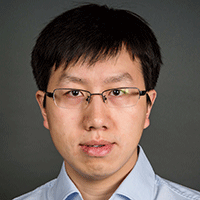
Hangbo Zhao
University of Southern California
Submission Title: Reconstruction of Multimodal Deformations of Soft Robots via Distributed Strain Sensing
Biography: Dr. Hangbo Zhao is an assistant professor in the Department of Aerospace and Mechanical Engineering and the Afred E. Mann Department of Biomedical Engineering at the University of Southern California, working on micro- and nanomanufacturing, and flexible electronics. Prior to joining USC, he was a postdoctoral researcher at Northwestern University. He received his M.S. and Ph.D. degrees in Mechanical Engineering at MIT, and his bachelor’s degree at Tsinghua University in China. Dr. Zhao has received several awards including the U.S. Office of Naval Research Young Investigator Award, the Society of Manufacturing Engineers (SME) Outstanding Young Manufacturing Engineer Award, and the ASME Haythornthwaite Foundation Young Investigator Award.

Matthew Zahr
University of Notre Dame
Submission Title: Improved Simulation of Shock-Dominated Flows Using High-Order Implicit Shock Tracking
Biography: Matthew is an assistant professor in the Department of Aerospace and Mechanical Engineering and at the University of Notre Dame, with a concurrent appointment in the Department of Applied and Computational Mathematics and Statistics. He received his PhD in Computational and Mathematical Engineering from Stanford University in 2016 and from 2016-2018 was the Luis W. Alvarez Postdoctoral Fellow in the Department of Mathematics at Lawrence Berkeley National Laboratory. He is the 2020 recipient of the AFOSR Young Investigator Award, 2022 ONR Young Investigator Award, and 2023 NSF CAREER award. His research interests include high-order methods for computational physics, PDE-constrained optimization, model reduction, and computational methods for resolving shocks and discontinuities.
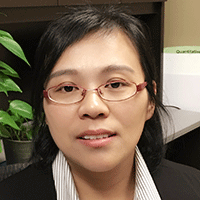
Ning Zhang
University of Maryland, College Park
Submission Title: Advancing Wind Turbine Sustainability: Designing Self-Healable and Re-Processable Vitrimer Composites Through Covalent Adaptable Networks
Biography: Dr. Ning Zhang joined the Department of Mechanical Engineering as a tenure-track Assistant Professor at Baylor University in 2022. She received her B.S. in Engineering Mechanics from Dalian University of Technology, China, her M.S. in Solid Mechanics from Huazhong University of Science & Technology, China, and her Ph.D. in Mechanical Engineering from the University of Florida. Before Baylor, Dr. Zhang worked as an Assistant Professor at the University of Alabama from 2019 to 2022. She was also affiliated with the Colorado School of Mines as a Research Assistant Professor and with Missouri S&T and Rice University as a Postdoc. Now her research group focuses on combining experimental and numerical techniques to predict, quantify, and optimize the relationship between the structure-property-processing of various materials including biomaterials, sustainable polymer composites, and high/medium entropy alloys. Dr. Zhang received NSF CAREER Award (2022), ORAU Ralph E. Powe Junior Faculty Enhancement Award (2021), TMS FMD Young Leaders Professional Development Award (2019). Dr. Zhang was also the winner of TMS SMD Young Professional Poster Contest (2019). During her PhD study, she was awarded the University of Florida Outstanding Academy Achievement (2013).
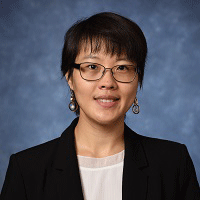
Xiayun Zhao
University of Pittsburgh
Submission Title: Toward RIPEST Photopolymer Additive Manufacturing (PAM): Cyber-Physical Dual-Wavelength Photoinhibition aided PAM
Biography: Dr. Xiayun Zhao joined the University of Pittsburgh (Pitt) as an assistant professor in the Department of Mechanical Engineering and Materials Science in August 2018. She received a B.S. from the Department of Precision Instruments in Tsinghua University (Beijing), and M.S. and Ph.D. in Mechanical Engineering from Georgia Institute of Technology (Atlanta). She worked as a full-time instrumentation and control system engineer in Houston for the Oil & Gas industry for a couple of years. Her interdisciplinary background cultivates her research interest in integrating precision engineering and additive manufacturing to realize the vision of advanced manufacturing. Her research lab, the ZIP-AM (ZXY Intelligent Precision – Advanced Manufacturing) Laboratory, aims to lead the important area of “Measurement Science and Control Technologies for Additive Manufacturing”. Zhao received a Faculty Early Career Development (CAREER) award from the National Science Foundation in 2023 for her integrated research and education in cyber-physical additive manufacturing. As a lead PI, Zhao has been working with interdisciplinary collaborators and research teams on several projects related to improving metal 3D printing as well as innovating photopolymerization-based 3D printing. These projects are sponsored by the US Department of Energy, National Science Foundation (CAREER, Future Manufacturing program, and Industry–University Cooperative Research Centers), as well the Manufacturing Pennsylvania Innovation Program. More details about Zhao's research are available at her lab website.
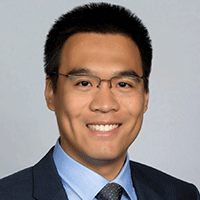
Yi Zheng
Northeastern University
Submission Title: Nanoscale Radiative Heat Transfer for Enhanced Thermal Infrared Energy Conversion and Cooling
Biography: Dr. Yi Zheng is an Associate Professor with expertise in sustainable energy and clean technology in the Mechanical and Industrial Engineering Department and director of the Nano Energy Laboratory at Northeastern University (Boston, MA). He received Ph.D. and M.S. from Columbia University (New York, NY) and B.S. from Tsinghua University (Beijing, China). He has published over 100 journal papers, filed 9 patents, and secured research grants over $4.5M from diverse sources including NSF, NIH, NASA, DARPA, ONR and US Air Force. His research aims to address climate change and the growing global challenges in energy and water scarcity. Prof. Zheng’s achievements are reflected in some prestigious honors and awards including Raymond Viskanta Award, Constantinos Mavroidis Translational Research Award, BBJ 40 Under 40 Award, NSF CAREER Award, NIH RI-INBRE Early Career Development Award, NASA Glenn Faculty Fellowship, ASTFE Early Career Researcher Award, Soleeva Energy Innovation Award, MassVentures Acorn Innovation Award, and MassCEC AmplifyMass Award.

Linxiao Zhu
Pennsylvania State University
Submission Title: Thermal Radiation for Energy Applications: Passive Cooling and Nonreciprocal Radiation
Biography: Dr. Linxiao Zhu is an assistant professor at the Penn State University. Dr. Zhu is interested in controlling heat and light for energy and information applications. Prior to that, Dr. Linxiao Zhu was a postdoctoral researcher in Mechanical Engineering in the University of Michigan, received his Ph.D. in Applied Physics from Stanford University, and a B.S. in Physics from the University Science and Technology of China. He has 35 peer-reviewed publications in journals on energy, nanotechnology, and photonics. He has received NSF CAREER Award, Kaufman New Investigator Award, Penn State Engineering Alumni Society (PSEAS) Outstanding Research Award, ASME Top Instructor Award from Penn State Student Chapter of ASME, Brennan Clean Energy Early Career Professorship, and MIT Technology Review 35 Innovators Under 35 (Region Award).